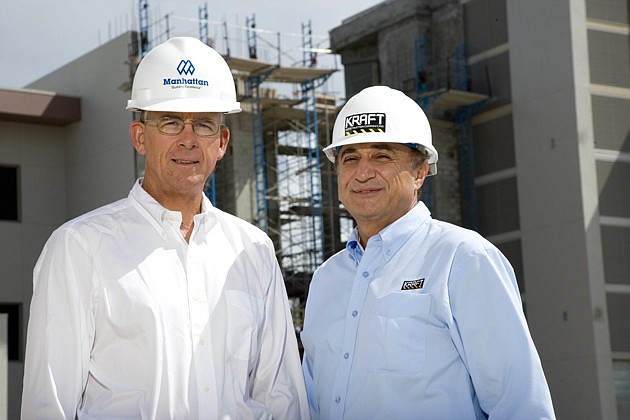Fred Pezeshkan is already looking ahead to 2011 because the construction industry will face another tough year before a recovery is in sight.
Pezeshkan, the chief executive officer of Kraft Construction in Naples, the second-largest construction firm on the Gulf Coast, is one of the shrewdest and well-connected executives on the Gulf Coast. Kraft has recently landed coveted projects such as the Red Sox spring-training facility in Fort Myers and the Veterans Affairs hospital in Cape Coral.
The government will remain the lifeline of the Gulf Coast's construction industry this year as Pezeshkan hopes government spending increases. “With the election coming in November, we're hoping to see more activity in the second half of 2010,” Pezeshkan says.
Best known for the condominium towers it used to build for private developers during the boom, Kraft has shifted to public work as corporate work evaporated. The firm has benefited from connections established by its sister company, Manhattan Construction, which has been building public projects for years. Rooney Holdings, which owns Manhattan Construction, acquired Kraft in 2008.
For example, with Manhattan's expertise, Kraft is planning to build roads and bridges. In addition, the company is looking for projects in the Caribbean. “We just bid a job at Gitmo,” Pezeshkan says, referring to a $50 million project at Guantanamo Bay, Cuba.
For now, Pezeshkan says Haiti is still in the clean-up phase of its reconstruction efforts. He says it's not clear yet who is going to fund the rebuilding of that country and how it's going to be managed.
Back in the U.S., the private sector is not going to rebound until credit becomes available and property values have stabilized, Pezeshkan says. For now, he says there aren't any indications that lenders are going to finance construction and development projects this year.
“As long as values haven't stabilized completely, it's very difficult for banks to lend money,” he says.
Although he expects federal spending on construction projects to increase later this year, Pezeshkan says he's concerned about state and local spending as tax revenues fall. Still, he doesn't see any area of the state particularly better off than another.
Outside of government, nonprofit health care and education facilities continue to grow, including mental-health centers and universities. Both areas see increased demand for their services in economic downturns.
Pezeshkan says he has not yet detected an improvement in municipal governments' anti-business attitude toward growth, which grew during the boom. But Pezeshkan sounds a hopeful note: “I don't believe it's getting worse,” he says. “I hear less complaints today than I did three years ago.”
Despite the recession, local governments on the Gulf Coast have resisted lowering taxes, sued the state for easing onerous development rules and continue to bog down entrepreneurs in bureaucracy.
“I'm hoping that we take the opportunity in this downturn to make the counties more efficient and more productive, as the private sector has been doing,” Pezeshkan says. “We have a better and more efficient organization today than we had five years ago.”






